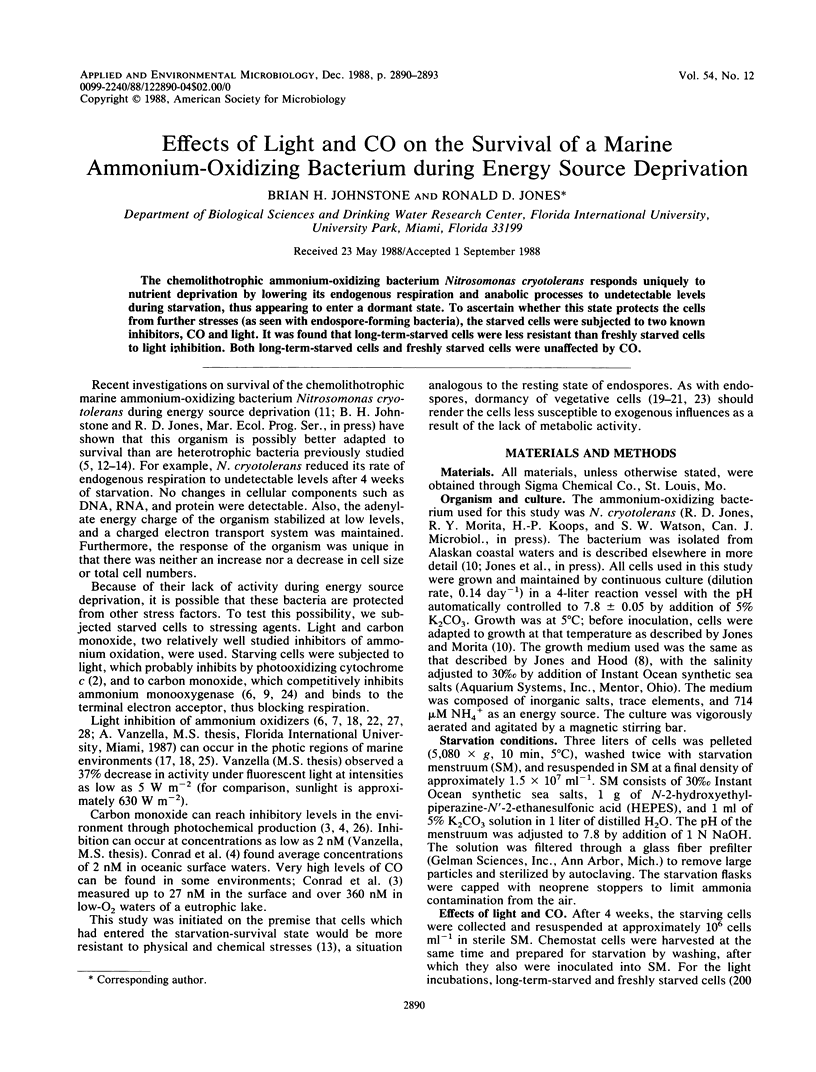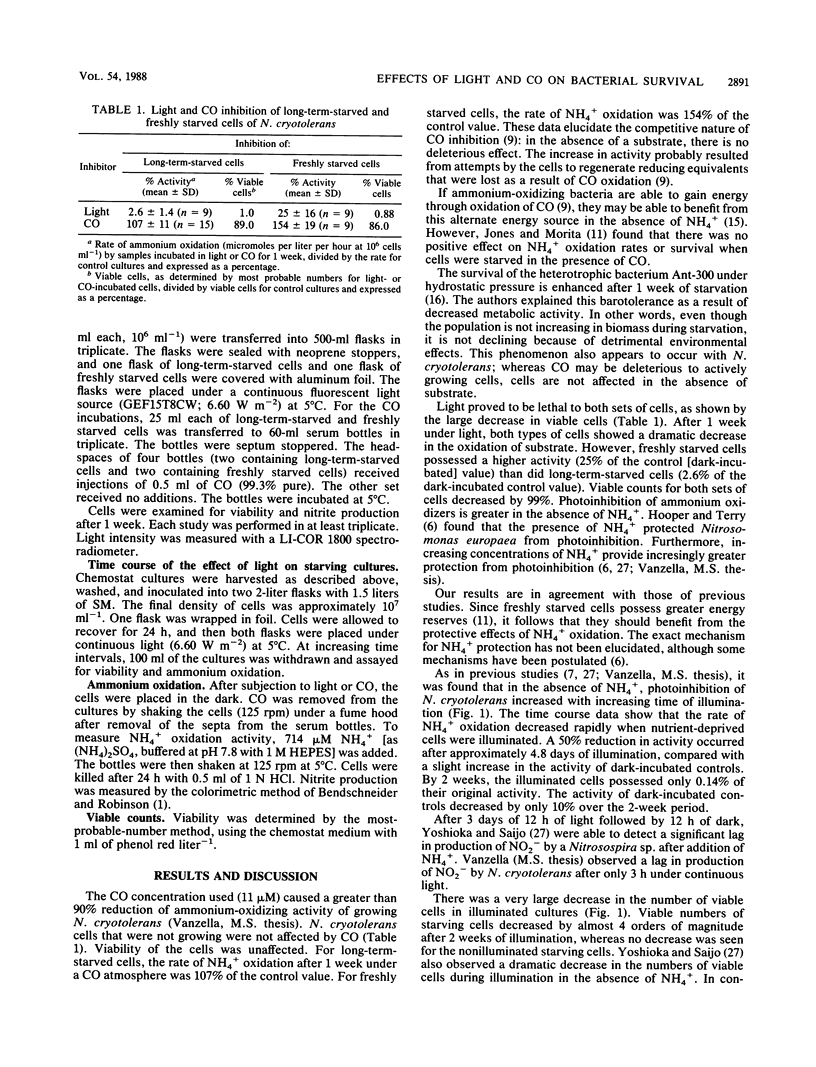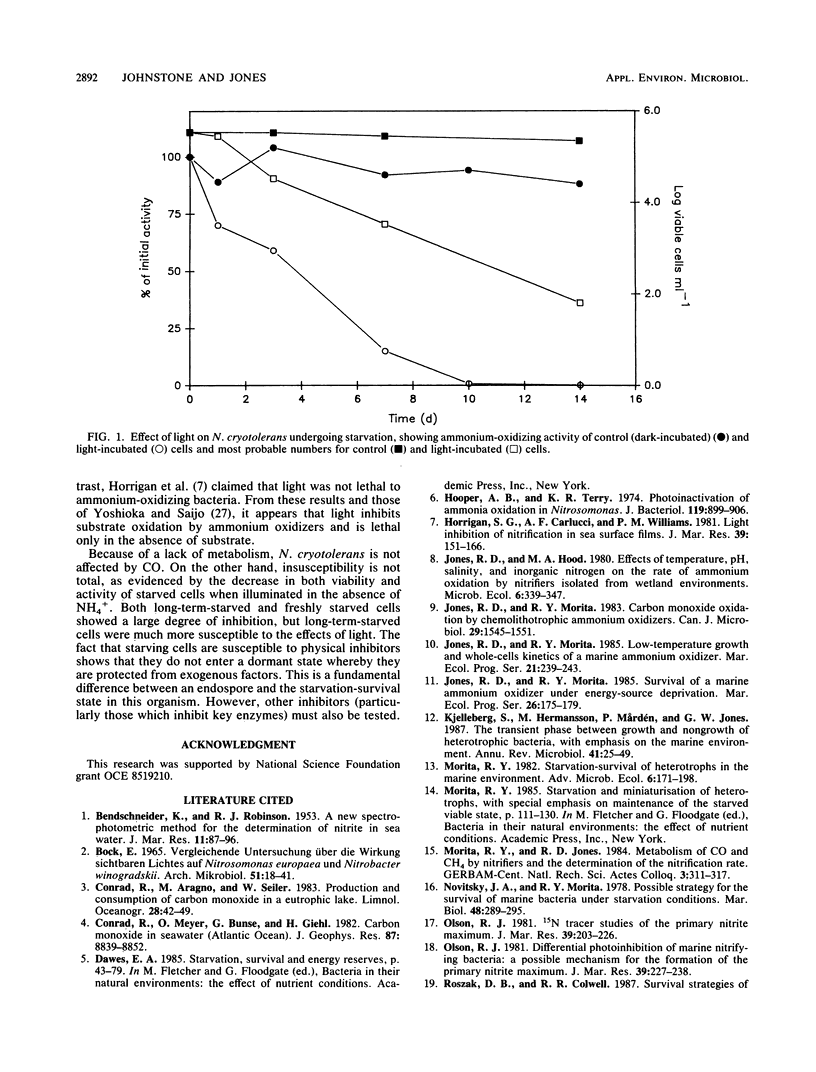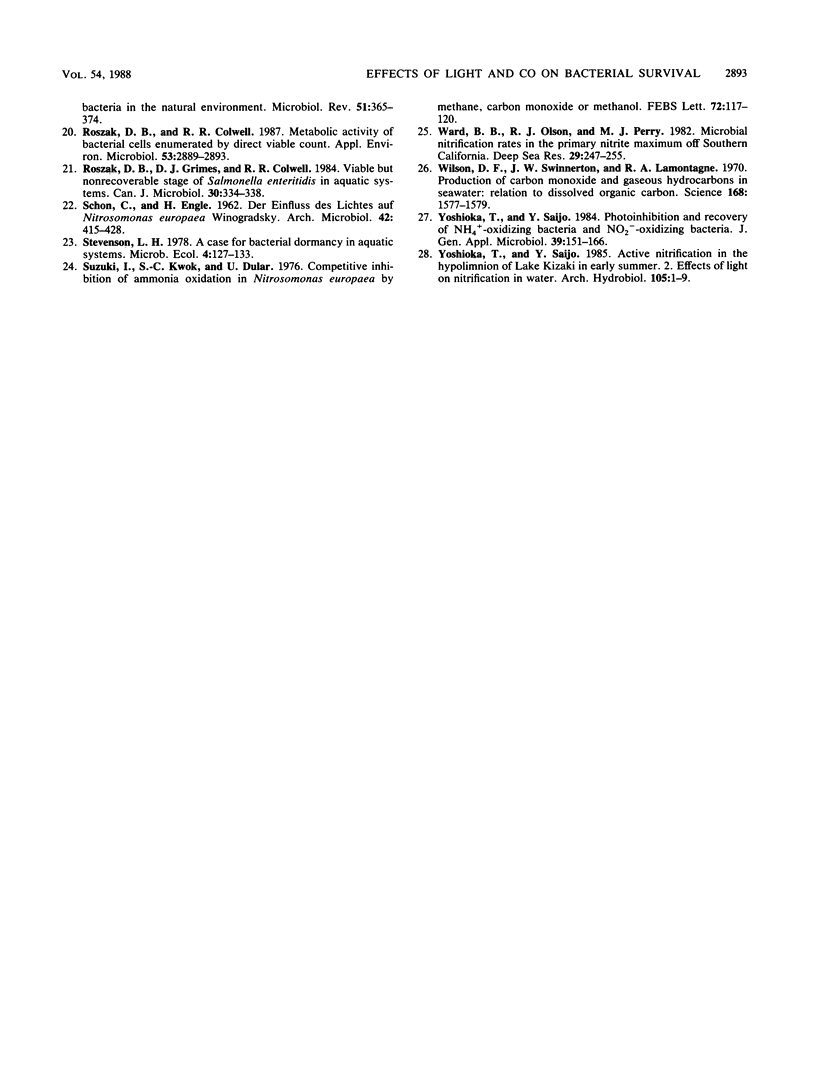Abstract
The chemolithotrophic ammonium-oxidizing bacterium Nitrosomonas cryotolerans responds uniquely to nutrient deprivation by lowering its endogenous respiration and anabolic processes to undetectable levels during starvation, thus appearing to enter a dormant state. To ascertain whether this state protects the cells from further stresses (as seen with endospore-forming bacteria), the starved cells were subjected to two known inhibitors, CO and light. It was found that long-term-starved cells were less resistant than freshly starved cells to light inhibition. Both long-term-starved cells and freshly starved cells were unaffected by CO.
Full text
PDF



Selected References
These references are in PubMed. This may not be the complete list of references from this article.
- BOCK E. VERGLEICHENDE UNTERSUCHUNGEN UEBER DIE WIRKUNG SICHTBAREN LICHTES AUF NITROSOMONAS EUROPAEA UND NITROBACTER WINOGRADSKYI. Arch Mikrobiol. 1965 May 28;51:18–41. [PubMed] [Google Scholar]
- Hooper A. B., Terry K. R. Photoinactivation of ammonia oxidation in Nitrosomonas. J Bacteriol. 1974 Sep;119(3):899–906. doi: 10.1128/jb.119.3.899-906.1974. [DOI] [PMC free article] [PubMed] [Google Scholar]
- Jones G. E., Johnson H. J. Heart rate and somatic concomitants of mental imagery. Psychophysiology. 1980 Jul;17(4):339–347. doi: 10.1111/j.1469-8986.1980.tb00160.x. [DOI] [PubMed] [Google Scholar]
- Kjelleberg S., Hermansson M., Mårdén P., Jones G. W. The transient phase between growth and nongrowth of heterotrophic bacteria, with emphasis on the marine environment. Annu Rev Microbiol. 1987;41:25–49. doi: 10.1146/annurev.mi.41.100187.000325. [DOI] [PubMed] [Google Scholar]
- Roszak D. B., Colwell R. R. Metabolic activity of bacterial cells enumerated by direct viable count. Appl Environ Microbiol. 1987 Dec;53(12):2889–2893. doi: 10.1128/aem.53.12.2889-2893.1987. [DOI] [PMC free article] [PubMed] [Google Scholar]
- Roszak D. B., Colwell R. R. Survival strategies of bacteria in the natural environment. Microbiol Rev. 1987 Sep;51(3):365–379. doi: 10.1128/mr.51.3.365-379.1987. [DOI] [PMC free article] [PubMed] [Google Scholar]
- Roszak D. B., Grimes D. J., Colwell R. R. Viable but nonrecoverable stage of Salmonella enteritidis in aquatic systems. Can J Microbiol. 1984 Mar;30(3):334–338. doi: 10.1139/m84-049. [DOI] [PubMed] [Google Scholar]
- Suzuki I., Kwok S. C., Dular U. Competitive inhibition of ammonia oxidation in Nitrosomonas europaea by methane, carbon monoxide or methanol. FEBS Lett. 1976 Dec 15;72(1):117–120. doi: 10.1016/0014-5793(76)80825-3. [DOI] [PubMed] [Google Scholar]
- Wilson D. F., Swinnerton J. W., Lamontagne R. A. Production of carbon monoxide and gaseous hydrocarbons in seawater: relation to dissolved organic carbon. Science. 1970 Jun 26;168(3939):1577–1579. doi: 10.1126/science.168.3939.1577. [DOI] [PubMed] [Google Scholar]


